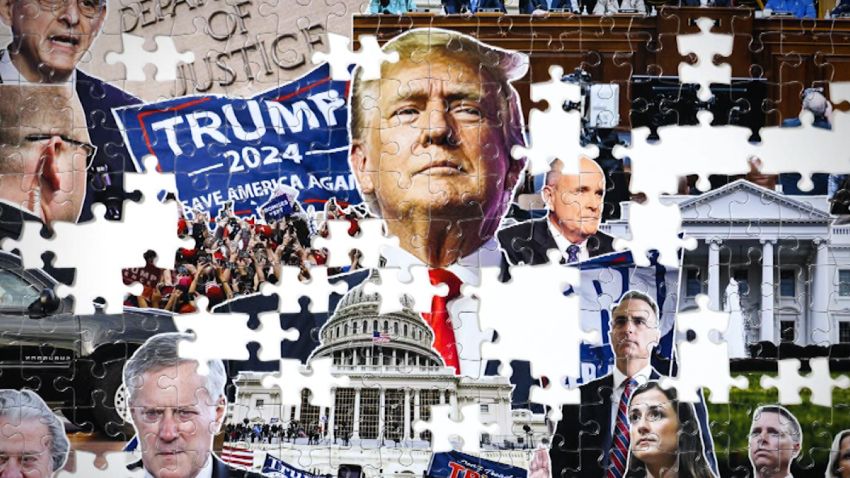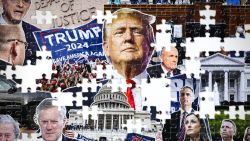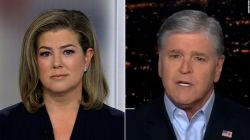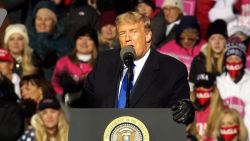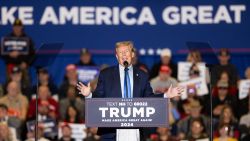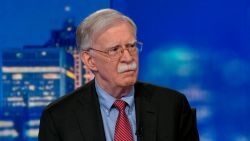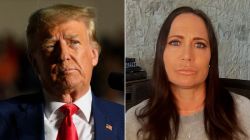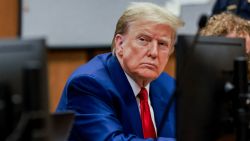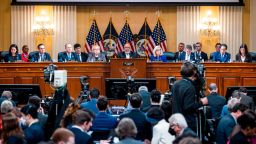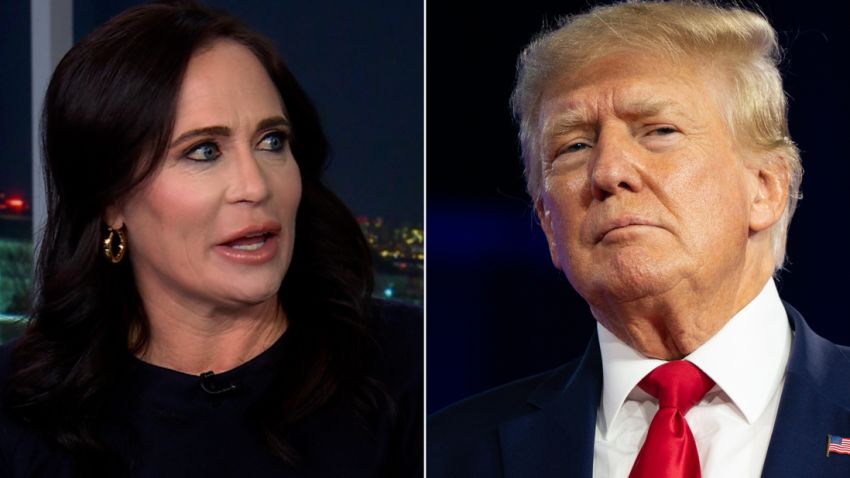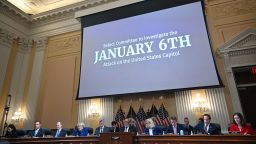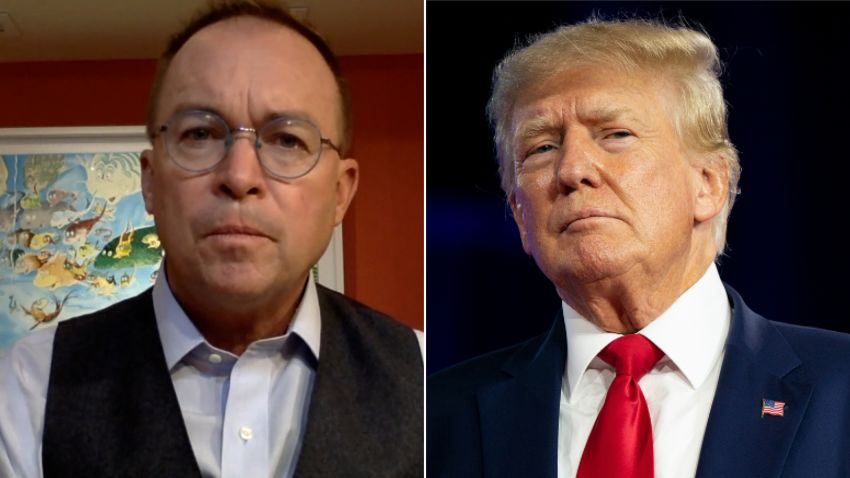With its mic drop finale, the House committee investigating the US Capitol insurrection left a fateful question hanging over Washington, Donald Trump and the 2024 presidential campaign: will the ex-president be charged with a crime?
The committee announced in its final public meeting on Monday it was recommending to the Justice Department that Trump be prosecuted on at least four charges, carefully matching the panel’s catalog of violence, lies, insurrection and dereliction of duty up to and on January 6, 2021, with specific legal statutes.
“Ours is not a system of justice where foot soldiers go to jail and the masterminds and ringleaders get a free pass,” said Maryland Rep. Jamie Raskin, a Democratic member of the committee who dramatically unveiled its criminal referrals.
Yet the panel, despite delivering what it called a “roadmap to justice,” has no power to try Trump and its decisions are not binding on the Justice Department. DOJ has its own investigation and faces prosecutorial decisions that require a higher bar than the committee’s political gambits. The potential charges concerned also have little case law precedent. And while both Attorney General Merrick Garland and the House committee have long argued that every American should be subject to equal justice, the gravity of indicting an ex-president and current White House candidate who has already used violence as a political tool means the department’s dilemma is among the most fateful in American history.
More broadly, the committee has now sketched the most urgent framing of a perennial question about Trump’s riotous careers in business and politics: Will he ever face accountability for his rule-breaking conduct? The question is especially acute given that the norm crushed this time almost toppled US democracy.
The issue of accountability gets to the core of Raskin’s comment about foot soldiers – since many of those who were in the mob that trashed the Capitol have been convicted and jailed already. And since winning the White House in 2016, Trump repeatedly avoided paying political and legal prices as the ultimate example of a “ringleader” who skips past judgment. Former special counsel Robert Mueller, for example, unearthed a trove of information apparently showing Trump obstructed the Russia investigation but decided not to make a finding that the then-president committed crimes. And Trump was the first president to be impeached twice, but both times most Republicans in the Senate found reasons not to convict him.
How and why the committee thinks Trump should be charged
The committee laid the groundwork for its referrals over months of hearings in which it showed that Trump knew he lost to Joe Biden but pushed on with multiple vote-stealing conspiracies anyway, then stirred up a crowd that invaded the Capitol as lawmakers met to confirm Biden’s victory.
Specifically, the panel said Trump should be charged with giving aid or comfort to an insurrection, obstructing an official proceeding, defrauding the US and making false statements. In an executive summary of its forthcoming final report, the committee argued: “The central cause of January 6 was one man, former President Donald Trump. … None of the events of January 6 would have happened without him.”
The committee’s televised hearings and the summary released Monday paint a devastating picture of Trump’s assault on the constitutional order and the previously unbroken peaceful transfers of power from one president to the next – the essence of American democracy.
The committee cites Section 1512 (c) (2) of Title 18 of the US code, which makes it a crime to “corruptly” obstruct, influence or impede any official proceeding or attempt to do so. Based on what the panel presented, that seems exactly what Trump did, with a cocktail of schemes apparently aimed at thwarting the will of voters in the run-up to the mob attack on Congress.
Yet a successful prosecution of Trump will need more than the detailed evidence laid out by seven Democrats and two Republicans on the House panel.
The DOJ has its own investigation into the events surrounding the insurrection and will have to weigh whether the case stands up as well in a court of law as it seemed to in the Capitol Hill committee room on Monday afternoon.
“The Justice Department has to go so much further on every single one of these people who was touched and interviewed and seen by the committee in any way,” former Deputy FBI Director Andrew McCabe said on CNN on Monday.
The nature of the committee, which featured little cross examination of witnesses and used curated video excerpts to make its most strident case, means that it is impossible to get a full picture of all of the evidence. McCabe noted that some witnesses might have made statements that were favorable to Trump or that were exculpatory in some way that would surely be used by his lawyers in court.
CNN legal analyst Elie Honig said that Trump’s lawyers would “go through every word of this, that is their job, that is their right. They are going to look for any inconsistencies, they are going to look for any basis to attack the potential witnesses against them, preferably in court. That is what defense lawyers do.”
One particular complication for the Justice Department is that the nature of the insurrection and the involvement of a former president makes this an unprecedented case. A good defense team could seek to puncture a prosecution by reframing Trump’s true intent and muddying the question of what he honestly believed about whether or not there was fraud in the 2020 election. They could also claim that in telling supporters to “fight like hell” to save their country, he was simply exercising his constitutional rights to free speech. Special counsel Jack Smith and Garland would have to satisfy themselves before laying charges that there was a substantial likelihood of obtaining a conviction if they decided to prosecute, after considering the likely thrust of Trump’s defense.
Rod Rosenstein, who served as deputy attorney general in the Trump Justice Department, told CNN’s Erin Burnett that the most serious referral – accusing Trump of giving aid and comfort to an insurrection – would likely come up against a First Amendment defense.
“The Department would have to prove that the president’s comments were directed at inciting imminent lawless action. In other words, they’d actually have to prove he intended for a mob to engage in violent activity. That would be a hurdle to prosecuting him under that charge,” Rosenstein said.
The political heat on the DOJ
It is unlikely that prosecutors at the DOJ will be influenced by the opinion of the select committee, albeit one that is backed up by a mountain of evidence, that the former president should be indicted. Still, the volume of testimony and other documents that have been amassed by the panel could be useful to the DOJ’s investigation, which is one reason prosecutors have been keen to get hold of its testimony and other materials for months.
With the DOJ already facing the enormous pressure of investigating Trump, which escalated when he declared his 2024 bid last month, it’s hard to say that Monday’s events will add to the burden. But at the same time, if Garland were to disregard multiple referrals, he would be certain to infuriate Democrats who already think the department has been slow to pursue Trump.
In the event that DOJ agrees with one of the lesser charges, the political earthquake caused by a prosecution might not be much different from if Smith believed Trump had aided an insurrection. America has never known a scenario in which the administration of a sitting president indicted a successor who is engaged in a bid to topple him. And of course, if no case is made over January 6, Trump is also facing the possibility of charges in another Justice Department investigation – into his hoarding of classified material at his Mar-a-Lago resort after he left office.

One thing is for sure. The DOJ is racing against the clock. With the 2024 campaign season underway and given the time it takes to mount a prosecution, Smith doesn’t have the luxury of years. This may help explain signs that his investigative pace is cranking up, following the recent reappearance of two ex-White House counsels before the grand jury.
One way that the committee’s graphic depiction of Trump’s aberrant behavior could help Smith is by preparing the public – at least the portion that does not simply defend Trump whatever he does – for the grave possibility that a former president could go on trial. Attempted coups are, after all, more akin to fragile developing world democracies and dictatorships.
The committee may have had another political consequence. The video of Trump’s mob smashing into the Capitol and the courageous testimony of witnesses, often Republican, who testified against him will certainly be at the center of the 2024 presidential campaign if Trump is the GOP nominee.
Committee vice chair Liz Cheney, who sacrificed a career in the House GOP to try to bring Trump to account, left no doubt of the committee’s ultimate purpose – one she is unlikely to relinquish even when it is extinguished by the incoming House GOP majority – to prevent the ex-president from ever getting near the Oval Office ever again.
“No man who would behave that way at that moment in time can ever serve in any position of authority in our nation again. He is unfit for any office,” the Wyoming Republican said on Monday.

